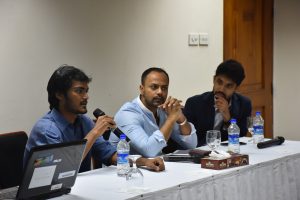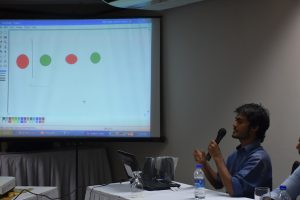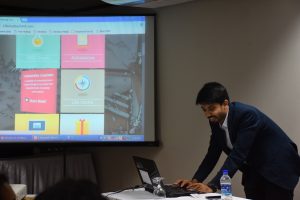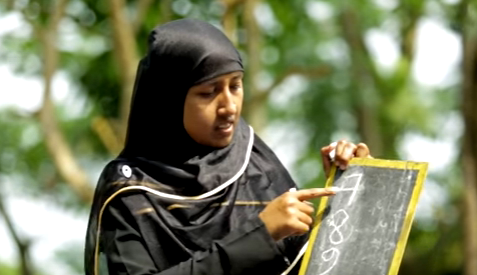The past decade has marked several reforms to the current education system of Bangladesh. There exists mixed reviews about what we could have done, but there is no debate about the fact that we have come a long way and lived through the challenges thrown at us, especially at the bottom of the pyramid. Increase in number of board exam certificates and grade point average does not reflect the strength of a curriculum, however, when PhD holders design the best of the innovations simultaneously with the drop outs, we need to admit that we must have done something right.
Innovation in education is multifaceted and can take place at any point of the supply chain, ranging from teaching methodology (Summit Public Schools), empowering teachers (Teachers Pay Teachers/ Edcamp), parental involvement (Kaymbu) to large scale sustainable business models (International Bridge Academies) It can happen anywhere and by anyone. Technology is the key to ensure outreach and scalability of a model to generate impact; however, small innovations take place inside classrooms with no digital support whatsoever.
1 out of 5 children in Bangladesh do not have access to transport during the dry season, which almost doubles when it starts to rain. BRAC boat schools, ShikkhaTari set sails in 2011 to reach out to the remote Haor regions of the country. To date, BRAC Education Program (BEP) has established 607 boat schools across 14 different districts.
Both vertical and horizontal partnerships play a key role in creating an innovation friendly environment where mutual exchange of skills, resources, insights earned from the best practices and lessons learnt from the failures turn results into a social impact. With this vision, the BRAC Social Innovation Lab invited three emerging innovators in the field of education at the Innovation Forum on May 30th. Shams Jaber, founder of The Tech Academy, Ayman Sadiq, founder of 10 Minute School shared their stories in an open discussion moderated by Saif Kamal, founder of Toru- The idea tree.

The Tech Academy, featured by many national and international media, is a social enterprise that teaches coding to school children starting from age 10. They have different levels of studentship within the programme and the students of the advanced level are engaged in projects that require them to develop technological solutions for the partner companies, namely Jatra, Leaping Boundaries, Jute Lab, Studio Bangi etc. The Tech Academy also has a branch in Rameripara where the school has a facility dedicated for free to the children of the Mro indigenous tribe of the Chittagong Hill Tracts.

The 10 minute school got into the market by tapping into the time factor viewers consider while watching a video: The shorter, the better. They outlined the need for contents among the Bangladeshi students, both in English and Bangla. Now the website features resources for school board exams, university admission, various skill development and life hacks videos. Their very recent addition includes the live classes. The students can also take different tests and compare their scores with others as well as monitoring their own progress. The school has an enormous followers and a huge potential of scaling up.

Toru-The Idea Tree is a rising innovation hub of the country which provides a platform for collaborative innovation for social change. Currently it is involved in multiple projects from innovation workshops for thriving entrepreneurs to designing and testing prototype solutions in several social sectors.
The modern innovation tales of Bangladeshis in education can be traced back to the launch of Khan Academy, as revolutionary as it could be. Very recently the startups like Light of hope, One degree initiative, Teach for Bangladesh, Jaago Schools, Leaping Boundaries etc. are prime examples of the interventions in the sector.
With BRAC’s overall journey towards sustainability, the BRAC schools are also turning towards a new model which requires use of tools and teaching methods to achieve cost efficiency. Availability of electricity, internet and cost of technology remain as a challenge. However, an improved pedagogical approach doesn’t necessarily have to be evaluated from a digital gaze, any approach that serves the need of the students, solves an old problem with existing resources and can be scaled up, can be called innovative. In that sense Bangladesh can be seen leading the innovations in the education sector with diverse public-private partnership, an improved tech infrastructure and a rising entrepreneurial spirit.
